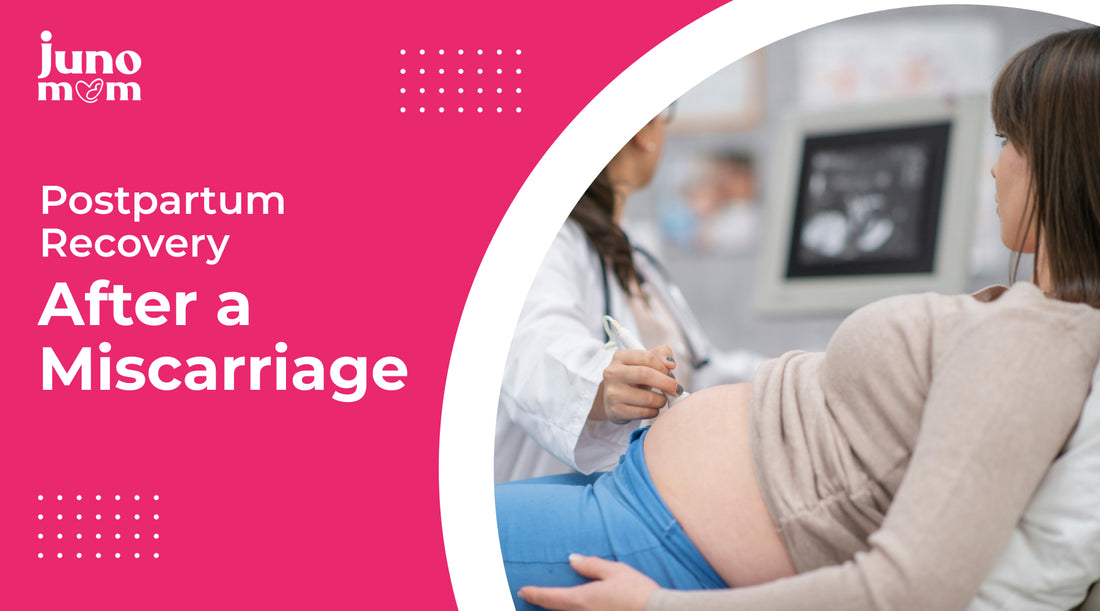Experiencing a miscarriage is a heartbreaking event that affects the body and mind. The path to recovery is personal and needs significant time, compassion, and understanding. In this phase of life, family and friends play a vital role in helping mothers cope with the loss. You must know the ways to recover physically as well as emotionally from such a loss. We are here to help you through this journey.
Physical Recovery After a Miscarriage

-
Immediate Post-Miscarriage Care
After a miscarriage, it’s common to experience physical symptoms like bleeding and cramping, which can last from a few days to a few weeks. These symptoms are a result of the body returning to its non-pregnant state and expelling any remaining pregnancy tissue.
Take it easy and allow yourself to rest as much as possible. Monitoring your symptoms and seeking medical help if you experience severe pain or heavy bleeding is essential.
-
Medical Follow-up
It’s vital to schedule a follow-up appointment with your doctor to ensure that your body has healed completely and that there are no complications, such as infections. Your doctor may perform a physical exam or an ultrasound if needed.
Signs of infection, such as fever, chills, or foul-smelling discharge, should be addressed promptly.
-
Nutrition and Hydration for Healing
Recharging your body is crucial during recovery. Nourish yourself with iron-rich foods, like leafy greens and lean meats, to help replenish any blood loss and combat fatigue. Drinking plenty of water also supports healing and helps flush out any remaining toxins. Eating a balanced diet can boost your immune system and provide the nutrients your body needs for recovery.
Emotional Healing and Coping with Grief

-
Understanding the Grieving Process
Grief following a miscarriage can be complex and filled with many emotions, including sadness, guilt, anger, and confusion. Remember that grief is personal, and there’s no “right” way to feel or heal. It’s okay if your emotions don’t follow a clear path—many women find themselves cycling through various feelings over time.
Take time to understand what you feel, why you feel that way and what can make you feel better in such situations.
-
Seeking Emotional Support
Lean on your partner, family, or close friends for support. Talking about your feelings can be a powerful way to process them, even if it’s difficult. For some, joining a support group with others who have had similar experiences provides comfort and understanding.
Professional counseling can also be a valuable resource if you need additional help processing your emotions.
-
Dealing with Hormonal Changes and Emotional Swings
Just as hormones rapidly change after childbirth, hormonal shifts also occur after a miscarriage. These changes can heighten emotions and make grief feel more intense. Practice self-care methods, like journaling, meditating, or practicing gentle breathing exercises, to help manage these swings.
Self-Care Tips for Physical and Emotional Well-being

-
Rest and Gentle Activity
Physical rest is essential for healing, so listen to your body’s needs and avoid pushing yourself. When you feel ready, gentle movements like short walks or stretching can boost your mood and circulation. Start slowly, and let your body guide you in terms of activity levels. If you like physical activities, do your favourite one and something that your body is capable of handling.
-
Mindfulness and Relaxation Practices
Relaxation techniques, such as deep breathing exercises, meditation, and yoga, can help soothe both body and mind. Practicing mindfulness can help you stay grounded and process emotions as they arise, allowing you to work through grief and stress more naturally.
-
Connecting with Others and Sharing Experiences
Talking to others who understand your experience can provide a sense of camaraderie and validation, reminding you that you’re not alone in your journey.
Returning to Routine and Moving Forward

-
Knowing When to Resume Normal Activities
Gradually return to your routine when you feel physically and emotionally ready. There is no set timeline for healing, so take things slowly. Be patient with yourself and permit yourself to rest whenever needed.
-
Deciding on Future Pregnancy Plans
It’s natural to wonder about trying for another pregnancy after a miscarriage. Whether you feel ready to try again soon or need more time to heal, it’s a deeply personal choice. Talk to your doctor when considering future pregnancies—they can offer guidance on timing and any necessary precautions to support a healthy journey ahead.
Take Your Time

Healing after a miscarriage is a journey that involves caring for both your body and heart. Remember, recovery doesn’t have a set timeline—it’s okay to move at your own pace. Be kind to yourself, seek support when you need it, and allow yourself the space to heal. You are not alone, and there are communities, healthcare professionals, and loved ones ready to support you every step of the way.


